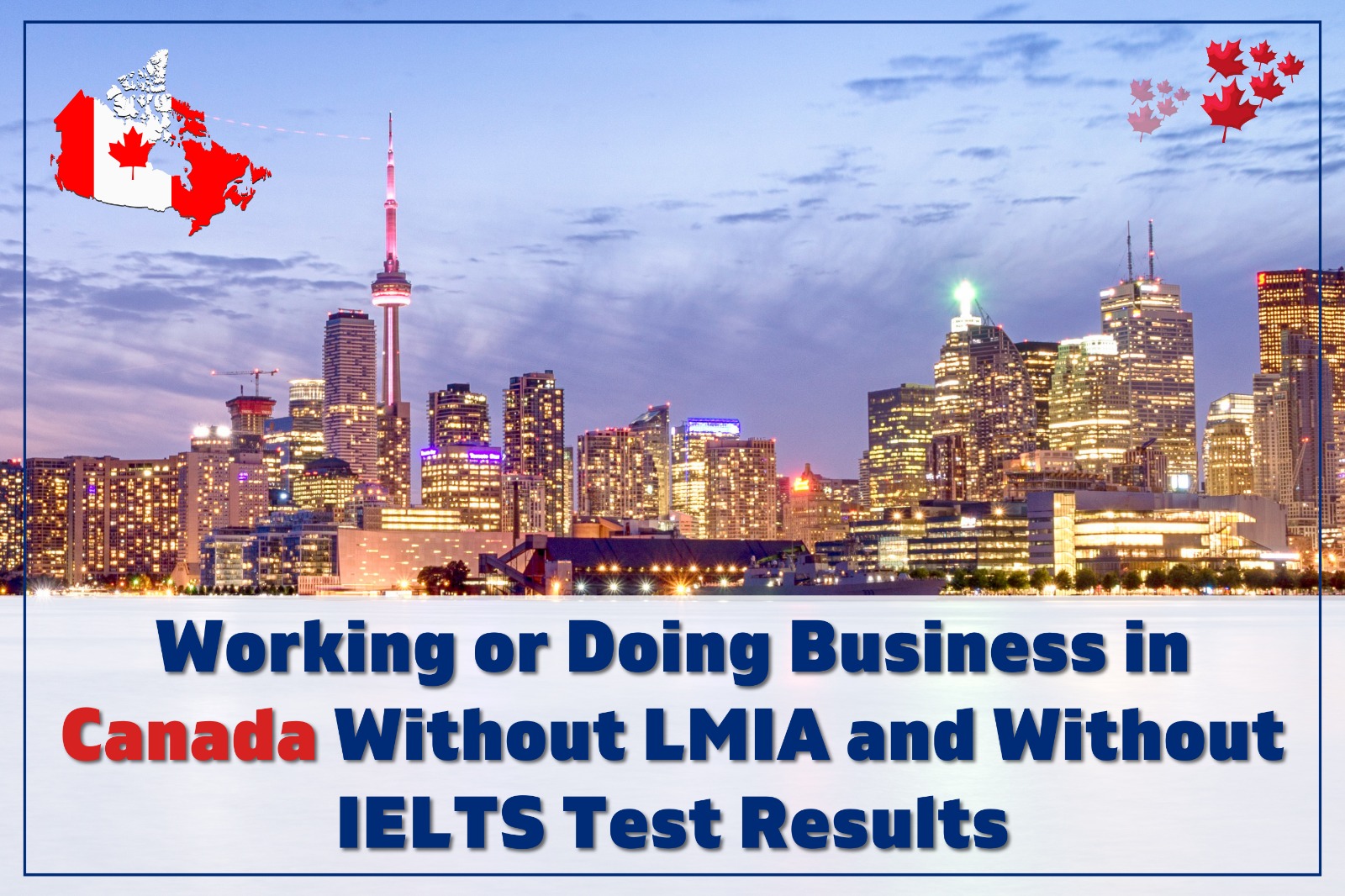FIXING CANADA’S IMMIGRATION SYSTEM: A COMPREHENSIVE REFORM AGENDA
Canada’s immigration system faces an unprecedented crisis. With processing backlogs exceeding 2 million applications, record asylum claims, and public confidence eroding, urgent systemic reforms are essential. This document outlines concrete measures to restore integrity, efficiency, and public trust.
Implement Strict Application Caps Across All Programs
Canada must extend application intake caps—already used for family sponsorship—to all immigration classes. The federal government should set annual targets for Express Entry, Provincial Nominee Programs, and other streams, halting intake once quotas are reached. This prevents endless backlogs and ensures IRCC can process applications within reasonable timeframes. For 2025, IRCC already capped international study permits at 360,000, resulting in a 45 percent drop in approvals. Similar mechanisms should apply universally, not selectively.
Eliminate Job Offer Points from Economic Immigration
Job offers in Express Entry currently award up to 200 Comprehensive Ranking System points, fueling a black market for fraudulent Labour Market Impact Assessments (LMIAs). Large payments to sponsors for fake job offers have become systemic. In December 2024, Canada finally removed job offer points from Express Entry, refocusing on human capital: education, language proficiency, and work experience. This reform must extend to all economic pathways, ending payments for sponsorship letters and ensuring selection based on genuine skills, not documents purchased from intermediaries.
Restrict Work Permit Flexibility and Strengthen Employer Verification
Foreign workers on LMIA-based permits currently face enforcement gaps allowing unauthorized job switching. Impose strict no-switching rules for the first two years of employment and conduct rigorous audits of sponsoring companies to verify genuine labor needs and workplace standards. This protects Canadian workers while deterring exploitation of temporary resident schemes.
Block Low-Level Education Pathways to Immigration
Post-secondary college studies, particularly at unregulated community colleges, increasingly serve as backdoors to work permits and permanent residency via the Canadian Experience Class, drawing applicants with no genuine study intent. Canada should deny work permit or PR pathways for non-university diplomas, reserving such routes for bona fide bachelor’s and advanced degree holders. Recent study permit caps (capped at 360,000 for 2025) are a step forward but must be accompanied by credential verification and institution monitoring.
Reform Entrepreneur and Start-Up Programs
The Start-Up Visa program, which processed over 16,000 files involving 43,000 applicants, was suspended in December 2025 due to backlogs, unconditional permanent residence pathways, and fraudulent letters of support issued by fee-charging designated organizations. Future entrepreneur programs must abandon one-step permanent residency. Instead, require monitored temporary status first, granting PR only after proven business success within Canada. The pending 2026 Entrepreneur Pilot offers this opportunity.
Regulate Education Agents and Institutions Strictly
Immigration agents in source countries, particularly India and Philippines, systematically recruit low-quality students via forged documents and false job promises. In 2024, IRCC uncovered over 10,000 fraudulent letters supporting international student applications. Canada must impose strict monitoring of Canadian educational institutions and their foreign agent networks, with penalties for non-compliance. Mandatory agent licensing and victim compensation funds are essential to curb fraud and protect defrauded applicants.
Permanently Ban Visitor-to-Work Permit Conversions
Allowing visitor visa holders to apply for work permits from within Canada—a temporary policy in effect from 2020 to August 2024—enabled widespread status gaming. Permanently ban such conversions to preserve system integrity and prevent individuals from bypassing proper work permit channels.
Cap Asylum Seekers and Refugee Intake
Canada’s Refugee Protection Division faces a record backlog of 291,975 claims as of July 2025, with monthly surges adding thousands more. Canada must establish an annual asylum intake cap aligned with processing capacity and settlement resources. For 2025, the government reduced Government-Assisted Refugees to 16,000 and cut Privately Sponsored Refugee targets by 30 percent—steps in the right direction but insufficient without capping inland claims. Limit asylum applications to verified persecution cases and end mass resettlement from ongoing war zones. War-affected countries such as Sudan, Ukraine, Gaza, and Syria generate continuous displacement; accepting unlimited claimants from conflict zones strains housing, healthcare, and social services while enabling applicants to game the system through prolonged backlogs.
Update Asylum Law for the 21st Century
The 1951 Refugee Convention, drafted after World War II when refugee crises were discrete and geographically bounded, cannot accommodate 2026’s permanent global conflicts. Modern asylum law must distinguish between short-term emergency situations and indefinite conflicts, offering temporary protection for the former and strictly limiting permanent resettlement for the latter. Countries worldwide facing similar pressures have adopted tighter approaches; Canada must follow suit while maintaining humanitarian commitments to the most vulnerable.
Strengthen Humanitarian and Compassionate (H&C) Program Controls
The H&C program, designed for exceptional hardship cases, has become a de facto residency loophole. Processing times range from 12 to 600 months, with inventory reaching 49,900 applications. Rejected asylum seekers file H&C applications to secure work permits during prolonged backlogs, effectively converting refusals into indefinite stays. IRCC must implement strict intake caps for H&C, establish service standards with clear timelines, and differentiate between applicants (Canadian-born dependents vs. economic migrants reframed as humanitarian cases).
Monitor Educational Institutions and Agents
Education consultants and recruitment agents abroad promise international students employment and quick permanent residency, not education. These agents, working with Canadian institutions desperate for tuition revenue, supply poor-quality students who abandon studies for low-wage work. Canada should audit Canadian educational institutions and their foreign partnerships, audit approval of agents abroad, and tie international enrollment targets to institutional compliance with recruitment ethics.
Increase Enforcement and Deportations
Canada must accelerate deportations of rejected asylum seekers and individuals overstaying permits. Current processing backlogs and weak enforcement have created a de facto refuge for failed claimants and status violators. Dedicating IRCC resources to removals—not just processing applications—would reinforce system credibility and deter abuse. Those remaining in Canada despite refusals face no consequences, signaling that non-compliance is tolerated.
Align Immigration Levels with Housing and Service Capacity
Permanent immigration targets of 365,000 (2027) and earlier targets of 500,000 (2025) were set without regard to housing availability, healthcare capacity, or infrastructure. Massive temporary resident populations (6.5 percent of Canada’s population in 2024, targeted to shrink to 5 percent by 2026) overwhelmed housing markets. Future targets must be based on rigorous capacity assessments, including available housing units, hospital beds, school spaces, and language training seats. Public support for immigration depends on demonstrable integration success.
Boost IRCC Processing Capacity
Despite processing millions of applications annually, IRCC faces chronic understaffing and outdated systems. Wait times for spousal sponsorship exceed 23 months in non-Quebec Canada, and applications for humanitarian relief face 50-year backlogs. The federal government must significantly increase IRCC funding for hiring, training, and digital modernization. Service standards should be binding with automatic refunds or fast-tracking when exceeded.
Prevent Application Cancellations
Bills C-2 and C-12 propose granting IRCC unilateral authority to cancel applications without recourse. This would punish applicants for government mismanagement. Instead, if intake caps are exceeded, simply stop accepting new applications—do not retroactively cancel those already received. Cancellation powers would destroy Canada’s reputation for procedural fairness and predictability, precisely the qualities that historically made it an immigration leader.
Create Transparent Communication and Timelines
Applicants face uncertainty as processing times fluctuate weekly with no clear communication. IRCC should publish monthly updates on processing times by program, inventory levels, and expected decisions. Clear timelines—even if lengthy—are better than uncertainty. Where backlogs are severe, applicants should be informed upfront of realistic wait times or offered alternative pathways.
Conclusion
Canada’s immigration system, once a global model, has deteriorated into a backlog-ridden, fraud-prone apparatus that neither serves applicants nor advance Canada’s economic interests. Implementing strict intake caps, eliminating job offer fraud, capping asylum intake from conflict zones, reforming asylum law for modern realities, strengthening enforcement, and expanding IRCC capacity are essential first steps. These measures—rooted in integrity, efficiency, and realism—can restore public confidence and position Canada as a competent, fair immigration leader. The alternative is continued decline, public backlash, and a system so burdened that it serves no one.
The Author Prashant Ajmera is an immigartion lawyer in India and also Canadian Citizen since 1997 and founder of Ajmera Law International – Global Mobility and Cross Border Law – www.ajmeralaw.com |Mo: +91 9898698184 | inof@ajmeralaw.com




